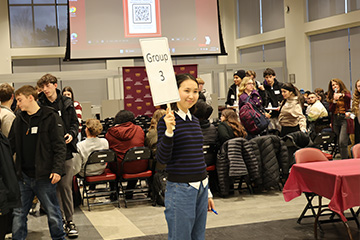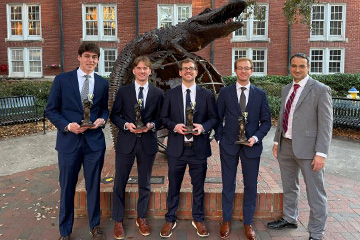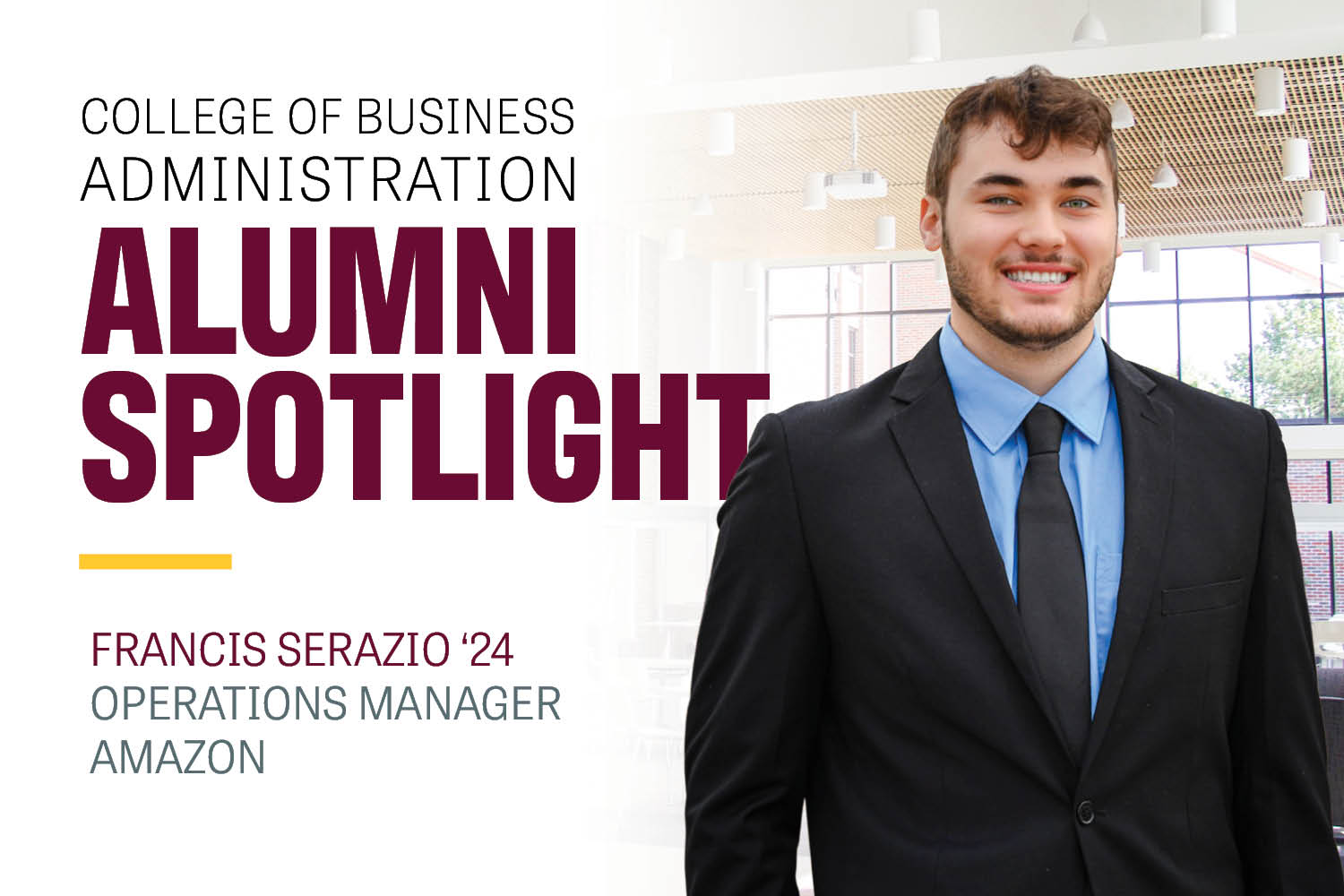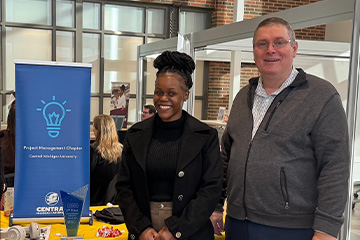From Africa to CMU: Brad Taylor’s unexpected path to the classroom
A former CFO with global experience, Taylor brings high expectations—and powerful insight—to finance education at Central Michigan University
Finance faculty member Brad Taylor didn’t set out to be a professor.
“People always said to me, ‘You should be a professor because you're really good at this stuff. You're really good at identifying the people who move up,’” he said. “That's why I got involved.”
With a professional background in developing countries like Madagascar, Taylor began training local staff to build long-term project sustainability. That mentoring sparked something deeper.
“I think I had a pretty good knack at identifying potential in students,” he said.
He didn’t expect that realization to bring him to Central Michigan University. After retiring from industry, Taylor began working on his Ph.D. from his home in South Africa—but the quiet didn’t suit him.
“I was at my place in South Africa working away on my dissertation, and I'm saying to my neighbors, ‘I cannot deal with this.’ I'm not dealing with people—it’s just so boring,” he said.
Craving more social interaction, he started looking for open faculty positions in North America—somewhere he could engage with others while continuing his research.
“I had to come back to North America anyway,” he said. “And it was just by luck that CMU had a professor who didn’t show up.”
“Former Finance & Law Department Chair]Nancy White decided to take a chance on me,” he said. “I was only going to teach one term. I was only going to teach two classes … and I ended up working full time.”
Today, his classroom experience reflects the kind of high-level thinking and decision-making that defined his professional career. Students in his classes aren’t just memorizing formulas—they’re solving problems pulled from the real world.
“They work in groups, and I do case study in class, so there's at least two case studies a week,” he said. “The case studies are real-world case studies adapted to a university level.”
Each case presents a challenge—mergers, acquisitions, financing decisions, market shifts—and students have to decide how to respond.
“It’s a bunch of facts. And using these facts, what are we going to do here?” Taylor said. “It gives them more real-world experience. We're not just sitting there going through a textbook.”
And that, he insists, is where the learning really happens.
“I want them to dig into the situation and defend their position—like they would in a real job,” he said.
His students don’t just read cases—they lead them.
“If you're going to tell me that you want to dispose, you do not want to make the acquisition, you want to sell their shares or whatever, I don’t want to see 50 strengths and two weaknesses,” he said. “You should be leading me so that by the time you get to the conclusion, I know what your answer is.”
For Taylor, the answer isn’t as important as the defense.
“In finance, there's no right answer, but how do you defend your position?” he said. “Why did I say that we're going to finance something by debt versus equity? Because, because, because, because—you have to have 15 reasons for it.”
That’s where the creativity comes in.
“Finance is an art,” he said. “It’s more of an art than it is a science as you progress through it.”
He reminds students that the numbers are just the start.
“When you're forecasting, it's the future. Nobody knows what the future is,” he said. “You have to tell everyone what you did, you tell everyone why you did it, and this is the result. But it’s more of an art of saying, ‘This is why these numbers look like this.’”
Taylor encourages his students to dive in early and often—not just in class, but in every opportunity that connects them to the world beyond CMU.
“You've got to get involved right away. Extracurriculars are the things that are going to make or break where you end up,” he said. “You're one of 1,000 finance graduates in the state of Michigan alone each year. So how do you make differentiate yourself from everybody else?”
His advice is clear: say yes, work hard, and stay curious.
“When you start working, you’ve got to be flexible,” he said. “You've got to be interested. You’ve got to understand markets and stuff like that. You can't just go in and say, ‘This is the present value of a bond,’ without understanding what the current situation is today.”
And if you don’t?
“You’re just going to end up in a role somewhere, pushing paper in a back room ... until AI takes over,” he said, laughing. “You’ve got to bring more to the table than just numbers.”




